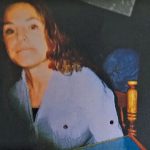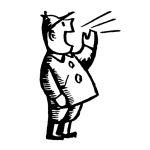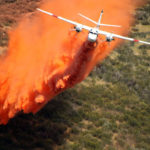Barnaby Finch is a well-known name in Idyllwild. A talented musician, Finch can be heard playing at Ferro with Paul Carman and Marshall Hawkins, or past Jazz in the Pines festivals. While Finch is known here for mostly playing jazz, his talents stretch well beyond that.
Finch grew up in the suburbs of Chicago, Illinois. His father was a good old boy from Arkansas who eventually made it as an advertising executive in Chicago. His mother was a math teacher. While no one in his family was a musician, everyone had a love for music.
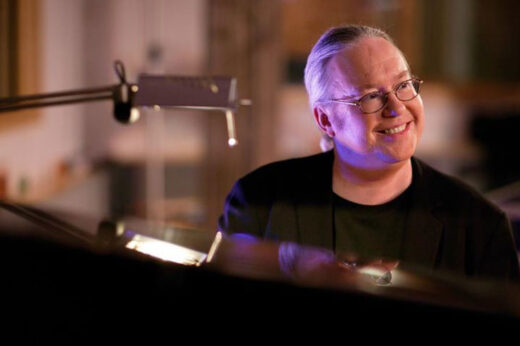
“I’m very thankful my mom loved classical music like Bach and Beethoven,” Finch explained. “My dad loved jazz. My sister liked Motown and my older brother liked B.B. King. He and I fell in love with The Beatles and Simon and Garfunkel. All that music to this day — I love. It brought me into not wanting to play one style of music.”
When Finch was a kid, he studied violin and drums. It wasn’t until he moved to California that he found his passion for piano.
In 1970, when Finch was 14 years old, his family moved to San Diego. He fell in love with the sun, the beach, and of course, all the music Los Angeles had to offer.
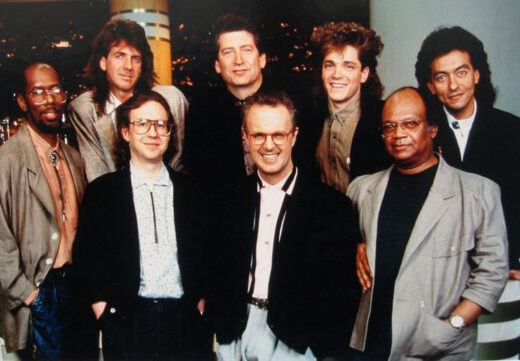
“It was a dream come true,” Finch admitted. “All of a sudden, I was playing music in bands and had girlfriends. I knew I never wanted to leave California.”
During his college years, Finch attended the University of California, Santa Barbara and studied music but the program was more classical-based and Finch wanted to learn and be more involved with jazz after seeing what a challenge it would be to try to master it.
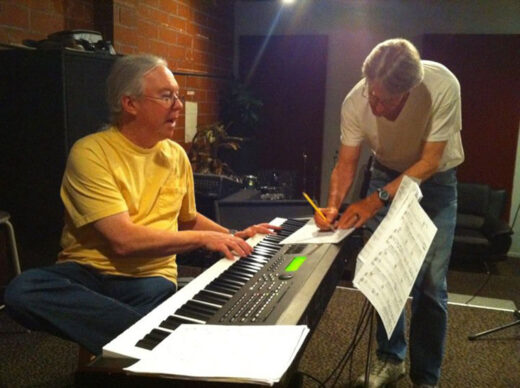
“I hadn’t decided if the music was going to be my career, so I transferred from University of California, Santa Barbara to University of California, San Diego and studied economics,” Finch said. “Right before I was about to get my degree, I got the call to play with Ronnie Laws. I took that opportunity to travel on tour.” That was in the late 1970s, and from then on, Finch’s talented yet humble nature has taken him all over the world.
“The music business is all about word of mouth,” Finch explained. “Working with one musician leads to working with another musician. There was a time that the phone just kept ringing for music opportunities.”
In his career, Finch has worked with some of the top names in the business. He’s toured, sat in on album recordings and spent hundreds of hours in the studio. Some of the musicians he’s played with include Ronnie Laws, Alphonse Mouzon, Boz Scaggs, Lionel Richie, Diana Ross and David Foster. In the 1980s and into the early 1990s, Finch toured and recorded with George Benson, Lee Ritenour, Pat Kelley, Lee Oskar, Kazu Matsui, Marlena Shaw, Laws, Richie, Earl Klugh, Anthony Marinelli, Tom Scott, Peter Sprague, Hubert Laws, Patti Austin, Kenny Rogers and many more.
Finch also performed on “The Pat Sajak Show” and “The Carol Burnett Show” while he was a part of the Tom Scott Band.
From the 1990s into the early 2000s, he produced and co-produced multiple albums, wrote music for the television documentary “Exposures” (about American photography) and continued to record in the studio with many of the musicians listed above while continuing to evolve and learn.
Finch has a deep understanding of music and finds joy in studying musicians that came before him.
“Music teaches you right away that you should have a deep respect for other cultures. You get disabused of the idea that there’s any inferior people in the world,” he said.
Finch credits much of his success to keeping a broad music style, keeping an open mind, not trying to overpower your way through the studios and always being willing to continue to learn.
“Lately I’ve been working a lot on arranging and orchestrating — learning instrumentation, harmonizing and arranging — things I should have learned in college,” Finch said. “Now, I’m buying scores by arrangers like Maria Schneider and Vince Mendoza that aren’t available to the public. It’s a whole other instrument writing for an orchestra. It’s astounding and I’ve really enjoyed learning more of it.”
With his career and infinite thirst for knowledge, Finch provided a bit of advice when I asked what he would share with those interested in learning music.
“These days, I find myself wanting to talk to young people with a mix of enthusiasm, encouragement and caution,” Finch explained. “If it’s really in your heart, you’re going to follow it anyways. It was easier when I was young to make a living making music. Those days are gone. You have to scuffle and market yourself in a way you didn’t have to do before, but if you’re willing to put the work in, I say go for it. Just make sure to have a backup plan.”
As our interview came to a close, Finch explained his love for chords, which is why he’s focused on the piano all these years.
“Chords are so rich,” Finch said. “It’s like you have a bunch of melodies all at once. Almost every time you hear a lovely melody in any circumstance, there’s accompanying to it and harmony underneath.”
Finch has learned the value of learning jazz, classical, pop, rock and country. He has a deep respect for all genres, styles and the talent it takes to create such music. His true talent for hearing and recreating that on whatever instrument he feels fit is real, and while humble, his true talent shows through every time you hear him play.








